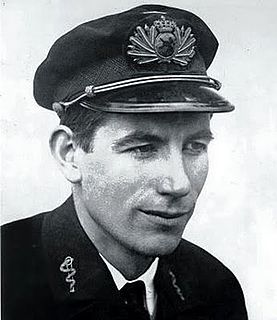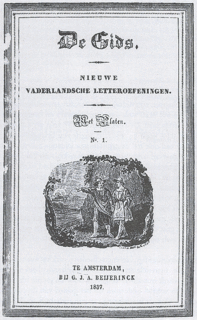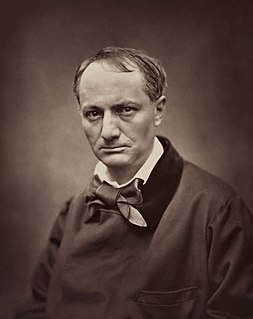
De Vliegende Hollander is a combination of a water coaster and a dark ride in amusement park Efteling in the Netherlands. It should have gone operational on April 16, 2006 Easter, exactly 328 years after the disappearance of the legendary Dutch man of war the Flying Dutchman; due to construction problems the opening was postponed to April 1, 2007.

Charles Polydore de Mont or Pol de Mont was a Belgian writer and poet.

Herinnering aan Holland is a poem written by Dutch poet Hendrik Marsman (1899–1940), first published in 1936. The poem describes the Dutch landscape and the Dutch struggle against the water. It is one of the best-known poems in the Dutch language.
Jacobus Marinus Hamelink, better known as Jacques Hamelink, is a Dutch poet, novelist, and literary critic, who is best known for his early short story collections such as Het plantaardig bewind and De rudimentaire mens. Later on in his career he gradually abandoned his pessimistic prose and chose to write more and more poetry full of historical and literary references, while at the same time not neglecting the sound value of his verse. These two factors have gradually alienated him from an initially enthusiastic audience.

Beetsterzwaag is a village in the municipality of Opsterland in the east of Friesland in the Netherlands. It had a population of around 3,485 in January 2017.
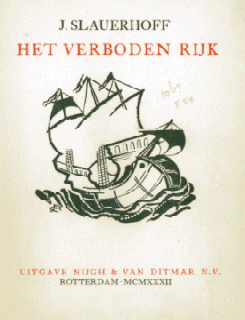
Het verboden rijk is a novel by Dutch author J. Slauerhoff (1898–1936). First published in 1931, the novel follows two narratives simultaneously—that of the Portuguese poet Luís de Camões, and that of a 20th-century Irishman, a radio operator and sailor. A sequel, Het leven op aarde, was published in 1933; a third book was planned but never finished.

Snikken en grimlachjes is the best-known work of Piet Paaltjens, a fictional poet created by Dutch poet and minister François Haverschmidt (1835–1894). Originally, it contained a collection of 24 poems. It appealed to a large audience, possibly due to its humoristic, melancholic-romantic tone, or maybe due to the poetry missing a "moral purpose", as Haverschmidt himself stated in the preface to the first edition. Typical for Paaltjens' poetry is the combination of romantic clichés, irony, and crude reality.

Bartelomeus Frederik Maria Droog is a Dutch poet, anthologist and researcher.

Serenade is a volume of poetry by Dutch poet J. Slauerhoff. First published in 1930, the poems in the collection are mostly personal and lyric poems. Critics have noted that some of the poems are inspired by 19th-century French poetry and are sexual in nature, and they have responded in various ways, with assessments ranging from "childish" to "pure lyric". The themes of desperation and the desire to escape bourgeois life, common in Slauerhoff's other poetry, are found in Serenade as well, and two of the poems were used in an obituary for the poet, who died eight years after the publication of this volume.

Oost-Azië is a volume of poetry by Dutch poet J. Slauerhoff. First published in 1928 under the pseudonym John Ravenswood, the collection contains poems whose theme is the Far East, a part of the globe Slauerhoff knew from his career as a sailor.

Fleurs de Marécage is a collection of French poems by Dutch poet J. Slauerhoff, first published in 1929. Some are poems originally written in French, others are French translations by the poet of his originally Dutch poems.

Saturnus is a volume of poetry by Dutch poet J. Slauerhoff. First published in 1930, the collection gathers the poems earlier published in Clair-Obscur, published by Slauerhoff in 1927 without his editorial oversight, with some additional poems.

Soleares is a volume of poetry by Dutch poet J. Slauerhoff. First published in 1933, and Slauerhoff's next-to-last volume, the poems in this collection center on Latin America and Portugal, and show a resignation or acquiescence not before seen in his poetry.
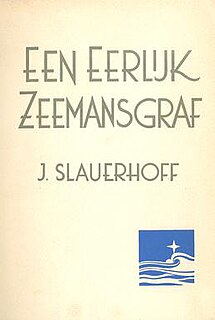
Een eerlijk zeemansgraf is the last volume of poetry published by Dutch poet J. Slauerhoff before his death.

Augusta Guerdina Peaux was a Dutch poet. She began her publishing career as a writer of prose fiction, in literary magazines and in one collection, and in the early 1900s started publishing poetry, in magazines associated with the literary movement known as the Tachtigers, with whom she became associated. With her sister Johanna, she translated poetry by Dante Gabriel Rossetti and Algernon Charles Swinburne, and with her friend Truus, with whom she shared a love for Iceland and its literature, she translated stories from the Edda. Two volumes of her poetry were published; she never sought literary fame, though some fame came to her posthumously.
The J.C. Bloem-poëzieprijs is a biennial Dutch literary award. The award is named after Dutch poet and essayist J. C. Bloem and is awarded to a Dutch or Flemisch poet's second collection of poems. The award was created in 2001 and first awarded in 2003.

Paul Marijnis was a Dutch writer and poet.

